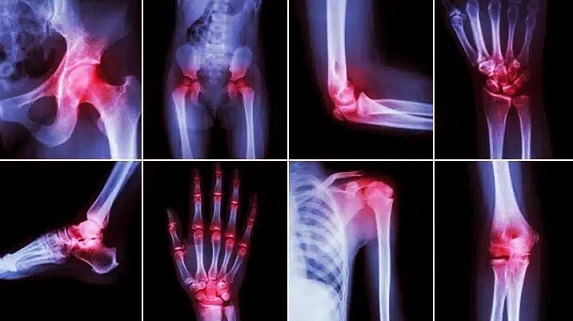Nikhil Prasad Fact checked by:Thailand Medical News Team Jul 21, 2024 8 months, 3 weeks, 3 days, 16 hours, 39 minutes ago
Arthritis News: Understanding Rheumatoid Arthritis
Rheumatoid arthritis (RA) is a chronic autoimmune disease affecting approximately 1% of the global population. This debilitating condition primarily targets the joints, leading to inflammation, pain, and eventual destruction of joint tissues. The key players in this process are immune cells, particularly macrophages, which are central to the inflammation and tissue damage observed in RA. This
Arthritis News report delves into a groundbreaking study by researchers from York University in Toronto, Canada, which sheds light on the role of the protein TRAF1 in exacerbating joint inflammation in RA.
 The role of TRAF1 in rheumatoid arthritis
The Importance of TRAF1
The role of TRAF1 in rheumatoid arthritis
The Importance of TRAF1
TRAF1, or tumor necrosis factor receptor-associated factor 1, is a crucial protein involved in various immune responses. It helps promote the survival, proliferation, and function of certain immune cells, including lymphocytes. However, TRAF1 also plays a somewhat contradictory role in monocytes and macrophages, where it regulates inflammation by controlling the activation of NF-κB, a protein complex that plays a key role in inflammatory responses. Genetic variations in TRAF1 have been linked to an increased risk of developing RA, but the exact mechanisms remained unclear until now.
The Study: Exploring TRAF1's Role in RA
Researchers Dr Ali Mirzaesmaeili and Dr Ali A. Abdul-Sater from York University's School of Kinesiology and Health Science, Muscle Health Research Centre, embarked on a study to understand how TRAF1 deficiency in macrophages affects RA. The study involved injecting wild-type (WT) mice with macrophages deficient in TRAF1 and observing the resulting inflammation and tissue damage in the joints.
The researchers used the collagen antibody-induced arthritis (CAIA) model of RA, a well-established method for studying RA in mice. They injected WT mice with macrophages either with or without TRAF1 into the knee joints. The CAIA model induces joint inflammation similar to human RA by using monoclonal antibodies against type II collagen. This approach allowed the researchers to specifically examine the role of TRAF1 in macrophages without interference from other immune cells.
Key Findings: TRAF1 Deficiency Worsens Inflammation
The study revealed several critical findings:
-Persistence of Macrophages: The injected macrophages, whether WT or TRAF1-deficient, remained in the synovial tissue of the knee joints for at least 72 hours. This confirmed that the macrophages could directly influence the local inflammatory environment.
-Increased Inflammation: Mice injected with TRAF1-deficient macrophages showed significantly more joint swelling compared to those injected with WT macrophages. This was evident from measurements of knee joint thickness taken over several days.
-Cellular Infiltration and Tissue Damage: Histological exam
inations showed a marked increase in inflammatory cell infiltration, angiogenesis (formation of new blood vessels), and bone erosion in the joints injected with TRAF1-deficient macrophages. This indicates that the absence of TRAF1 in macrophages leads to more severe tissue damage.
Implications for RA Treatment
These findings highlight the dual role of TRAF1 in different immune cells and suggest that targeting TRAF1 in macrophages could be a potential therapeutic strategy for RA. By reducing the pro-inflammatory activity of macrophages, it may be possible to alleviate joint inflammation and prevent the progression of RA.
Conclusions: A New Path Forward
This study provides compelling evidence that TRAF1 deficiency in macrophages significantly contributes to joint inflammation and damage in RA. The insights gained from this research could pave the way for new treatments targeting TRAF1 to manage RA more effectively.
The study findings were published in the peer-reviewed journal Biomolecules.
https://www.mdpi.com/2218-273X/14/7/864
For the latest
Arthritis News, keep on logging to Thailand Medical News.
Read Also:
https://www.thailandmedical.news/news/cinnamaldehyde-treated-exosomes-shows-promise-in-treating-joint-inflammation
https://www.thailandmedical.news/news/melatonin-a-potential-game-changer-in-arthritis-treatment
